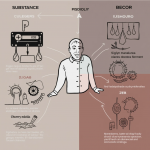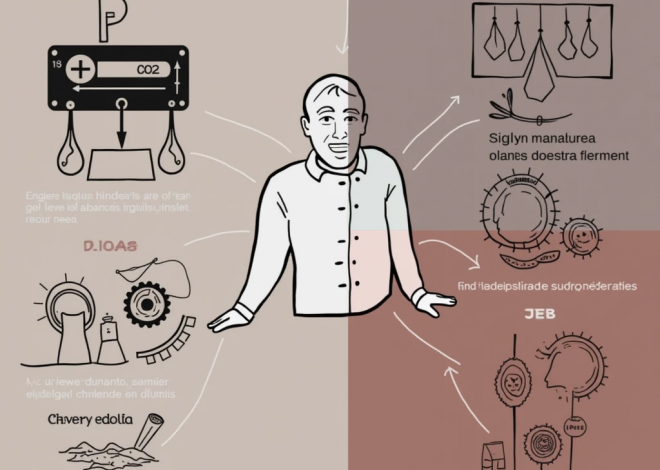
Best Cold Outreach to Health Insurance Agencies: A Complete Guide to Winning Clients
Cold outreach remains a crucial tool for businesses aiming to connect with potential clients, and health insurance agencies are no exception. But to maximize your efforts and stand out from competitors, you need a well-thought-out strategy. So, how do you conduct the best cold outreach to health insurance agencies?
This guide will cover everything you need to know about planning, executing, and optimizing your cold outreach efforts to health insurance agencies.
Cold outreach can seem daunting, especially when your target audience is a health insurance agency that is constantly flooded with requests. However, when done correctly, cold outreach can become an effective way to generate leads, build partnerships, and grow your business. The trick lies in personalizing your message, understanding your audience’s pain points, and consistently following up without being intrusive.
In this article, we’ll take a deep dive into the best cold outreach to health insurance agencies, providing you with actionable strategies and tips to improve your chances of success.
Why Cold Outreach is Crucial for Health Insurance Agencies
Benefits of Cold Outreach
Cold outreach allows you to establish connections with health insurance agencies that may not be aware of your offerings. Whether you’re promoting a product, service, or partnership, cold outreach can help you:
- Build new relationships
- Generate leads and sales
- Expand your network
- Increase brand awareness
Challenges in Cold Outreach to Health Insurance Agencies
Cold outreach, however, isn’t without its challenges. Health insurance agencies are often overwhelmed with emails and calls, so your approach needs to be creative and targeted. Common obstacles include:
- Breaking through the noise of competitors
- Capturing attention in crowded inboxes
- Maintaining interest in follow-ups
Understanding Health Insurance Agencies’ Needs
Before you reach out, it’s essential to understand the unique needs of health insurance agencies. What are their pain points? How can your solution help them address challenges?
Key Pain Points of Health Insurance Agencies
- Increasing operational efficiency
- Managing client relationships effectively
- Navigating regulatory and compliance issues
- Staying competitive in a rapidly evolving market
How to Position Your Solution
Your outreach should clearly highlight how your product or service can solve these problems. This is where personalization comes into play. Tailor your message to the specific pain points of each agency you contact.
Crafting an Effective Cold Outreach Strategy
The Importance of Personalization
Gone are the days of sending mass emails that feel impersonal. To create the best cold outreach to health insurance agencies, you need to make your messages stand out. Address the prospect by name, reference their company’s unique challenges, and propose tailored solutions.
Researching Your Prospects
A successful outreach campaign starts with thorough research. Look up each agency’s background, recent news, and specific pain points before sending your first message. Use tools like LinkedIn and industry publications to gather insights.
Best Cold Outreach Methods for Health Insurance Agencies
Email Outreach
Email remains one of the most effective ways to reach health insurance agencies. A well-structured, personalized email can yield high response rates if done right.
LinkedIn Outreach
LinkedIn is a powerful platform for business-to-business (B2B) outreach. You can connect directly with decision-makers, engage with their content, and build rapport before reaching out.
Phone Calls and Voicemails
While some may consider cold calling outdated, it can still be highly effective if done correctly. Make sure to prepare a strong script and leave concise, value-driven voicemails.
Building a Winning Cold Email Campaign
How to Write a Compelling Subject Line
Your subject line is the first thing your prospect sees. Keep it short, clear, and intriguing. For example, “Helping [Agency Name] Navigate Compliance Challenges” can spark interest.
The Ideal Email Body Structure
Start with a friendly greeting, introduce yourself and your company, mention a pain point specific to the agency, and offer a solution. Always end with a clear call-to-action (CTA).
Call-to-Action (CTA) Techniques
Your CTA should be direct but not pushy. Instead of “Buy now,” try “Would you like to explore how we can help [Agency Name] improve operational efficiency?” This invites a conversation rather than forcing a sale.
Using LinkedIn for Cold Outreach
Optimizing Your LinkedIn Profile
Your LinkedIn profile should reflect your expertise in the health insurance space. A professional photo, clear headline, and a well-written summary showcasing your value proposition are key.
How to Send a Cold LinkedIn Message
When reaching out via LinkedIn, keep your message brief and personalized. Mention a common connection or refer to something relevant in the prospect’s recent activity to create a personal connection.
Building Relationships Through LinkedIn Engagement
Don’t just reach out to someone once and disappear. Engage with their posts, comment thoughtfully, and share relevant articles. This builds familiarity and increases your chances of a positive response.
Cold Calling: Best Practices
Preparing a Strong Script
Your cold call script should be concise, focusing on the prospect’s needs. Introduce yourself, mention a specific challenge they might be facing, and propose a short, impactful solution.
Overcoming Common Objections
Be prepared for objections like “We’re not interested” or “We already have a provider.” Acknowledge their concerns and quickly demonstrate how your offering is different.
Knowing When to Follow Up
Follow-ups are crucial to cold calling. If you don’t receive a response, call back in a few days. Persistence pays off, but don’t overdo it – you don’t want to come across as annoying.
The Role of Follow-ups in Cold Outreach
How Many Follow-ups Are Enough?
On average, you may need 3-5 follow-ups to secure a response. Space them out by a few days or a week, and vary your communication methods (emails, calls, LinkedIn messages).
Timing Your Follow-ups
Avoid following up too soon. Wait at least two days after your initial message, then follow up in intervals of 3-5 days.
Personalizing Follow-up Messages
Each follow-up should build on the previous interaction. Mention any new developments or restate your offer in a way that addresses the prospect’s unique needs.
Tracking and Optimizing Your Outreach Efforts
Tools to Track Cold Outreach Performance
Use tools like HubSpot, Mailchimp, or LinkedIn’s Sales Navigator to track your email open rates, response rates, and overall performance.
Analyzing Key Metrics
Key metrics to track include email open rates, response rates, and conversion rates. If a particular method isn’t working, adjust your approach accordingly.
Legal and Ethical Considerations
Understanding GDPR and CAN-SPAM Laws
Before starting your cold outreach, make sure you’re compliant with relevant privacy laws like GDPR in Europe and CAN-SPAM in the U.S. Avoid sending unsolicited emails to individuals who haven’t opted in unless it’s legally permissible.
Building Trust While Respecting Privacy
Be transparent about how you obtained the prospect’s contact details, and always provide a clear opt-out option in your emails.
Common Mistakes to Avoid in Cold Outreach
Relying on a Generic Message
Never send out a generic message. Always personalize your outreach to address the prospect’s specific needs and industry trends.
Not Offering Value in the First Interaction
Your first outreach should provide value, whether it’s a free resource, an insightful comment, or a tailored solution. Don’t simply ask for a meeting without offering something in return.
How to Stand Out in a Competitive Market
Crafting a Unique Value Proposition
Your value proposition should clearly differentiate you from competitors. Highlight what makes your service unique and how it specifically benefits health insurance agencies.
Leveraging Testimonials and Case Studies
Including testimonials from other health insurance agencies can build trust. Case studies that demonstrate measurable results are particularly effective.
Conclusion
Cold outreach to health insurance agencies can be highly effective when approached strategically. By understanding their needs, personalizing your communication, and following up persistently, you can establish meaningful connections and grow your business. Remember, success doesn’t come overnight – but with the right tactics, you’ll be well on your way.
FAQs
What is the best method for cold outreach to health insurance agencies?
Email and LinkedIn are the most effective methods, but a combination of all three (email, LinkedIn, and cold calling) is ideal for maximum outreach.
How many follow-ups should I send?
On average, 3-5 follow-ups are recommended. Be sure to space them out and avoid being too persistent.
How can I personalize my cold outreach?
Research the agency’s pain points, mention specific challenges they face, and offer tailored solutions. Personalization is key to capturing attention.
Is cold calling still effective?
Yes, but it’s important to prepare a strong script and respect the prospect’s time. Cold calling can be a powerful tool when done correctly.
What metrics should I track for cold outreach?
Focus on open rates, response rates, and conversion rates to gauge the success of your outreach efforts.











